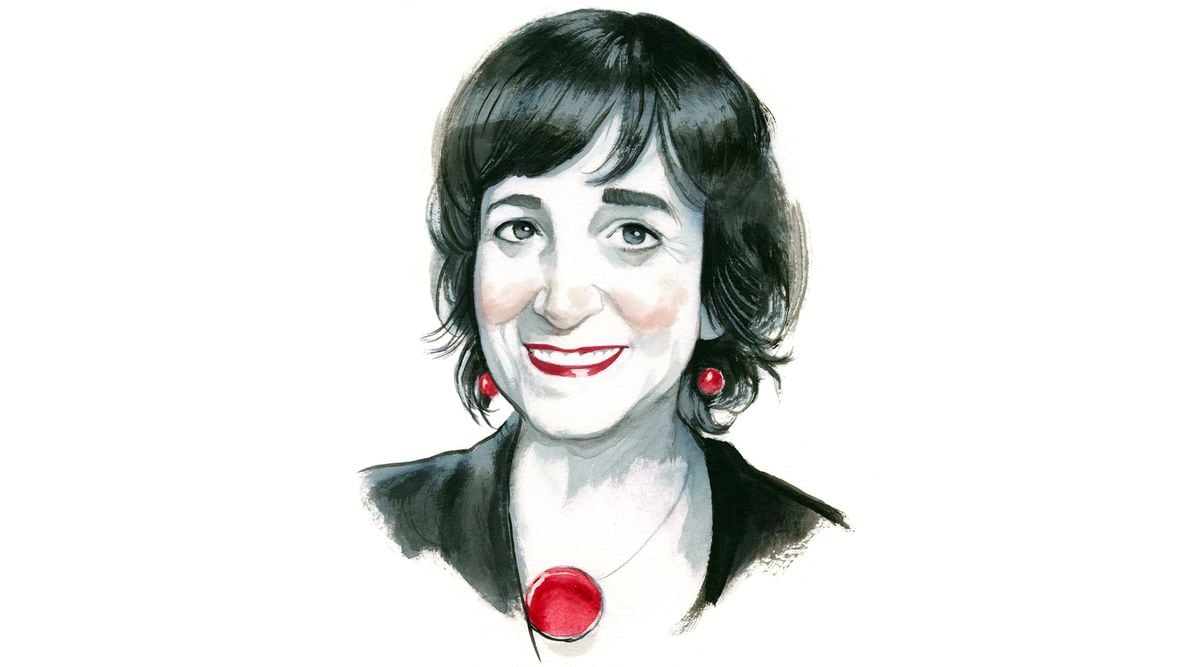I don't know if you saw the first photo that appeared in this newspaper of the (supposed) murderer of the sacristan in Algeciras, Yassine Kanjaa, already arrested, with a little smile of beatific satisfaction drawn on his lips.
A terrifying gesture.
Of Pompeyo González Pascual, the 74-year-old undertaker who (supposedly) sent six explosive letters from Miranda de Ebro to the Ukrainian Embassy, where he injured a person, and to other official buildings, I have not seen a frontal portrait so far , only the snapshot of his movement down the street, a hint of a man in profile with a cap covering half his face, the typical grandfather, although not so typical, it seems.
We have been told about Yassine Kanjaa, at least until the moment I write this article, that she had mental problems and received psychiatric treatment in Morocco.
As for Pompey, it is known that he lived very isolated since he retired 10 years ago, and revolutionary books and other objects have been discovered in his house that prove his ardent sympathy for the Soviet regime, which already seems quite wacky.
"He will have lost his head," said Elisa, his eighty-year-old neighbor.
So we already have here two violent events with the little sign of mental disorder.
Until a couple of years ago, psychiatric illnesses were barely talked about in the media, except when a person with a mental illness committed a criminal act, in which case their condition was trumpeted (lately things have improved a bit, but not much). ).
That, linking mental illness to aggressive behaviors, not only increases social rejection, but is also unfair.
Various studies show that people with mental illnesses tend to be victims and rarely aggressors, and in fact it is enough to reflect a little on the number of cases of violence that we hear about every day and that are committed by supposedly normal people.
Those perpetrated by sick people win by a landslide.
On the other hand, the mental disorder does not completely kidnap the sufferer.
The patient is more than his illness, which is why it annoys me that we use the word "crazy" so easily, as if that, the illness, had made the individual disappear.
On the other hand, we do not say of someone that he is "cancerous".
Because cancer does not devour everything, and neither does mental illness: there is always someone behind him who remains with his temperament and his demeanor.
As the well-known phrase of the Franco-Argentine psychiatrist Pichon-Rivière says, which he claimed to have heard from a Spanish nurse, “there are three kinds of crazy people: the crazy ones, the cute crazy ones and the shitty crazy ones”.
But back to Yassine and Pompey.
Does it matter much whether we label them wacko or not?
Well, maybe some police information can be gleaned from this, to the effect that if Kanjaa is considered to be insane, then there will be no cell to hunt down, a hidden and latent threat.
Which is a relief.
But is that relief safe?
I want to say that the walls that our society builds between the so-called madness and sanity are a mirage, a fiction.
Both realities intermingle and the borders are erased.
The ISIS members who burned prisoners with flamethrowers, the Taliban and Iranians who kill women who do not wear veils, the Catholic terrorists who murder abortion doctors in the United States,
Or the Ugandan Christian fundamentalists of the Lord's Resistance Army who kidnap children to become soldiers or sex slaves, aren't they just as crazy as Yassine?
(I dedicate the last two examples to Mr. Feijóo for saying "you will not see a Christian kill in the name of his religion", a statement as ignorant as it is manipulative).
And it is that madness ceases to be considered madness when it is collective.
In other words, the only difference is that Yassine and Pompeyo are alone, but that isolation and loneliness makes them more likely to integrate into the common delirium.
History has shown multiple times how easy it is for a supposedly normal mind to give in to collective hallucinations.
There is a black part in the human heart that is susceptible to being inflamed by the burning wind of fanaticism.
All crazy, not only them.
Great care.
Subscribe to continue reading
Read without limits
Keep reading
I'm already a subscriber















